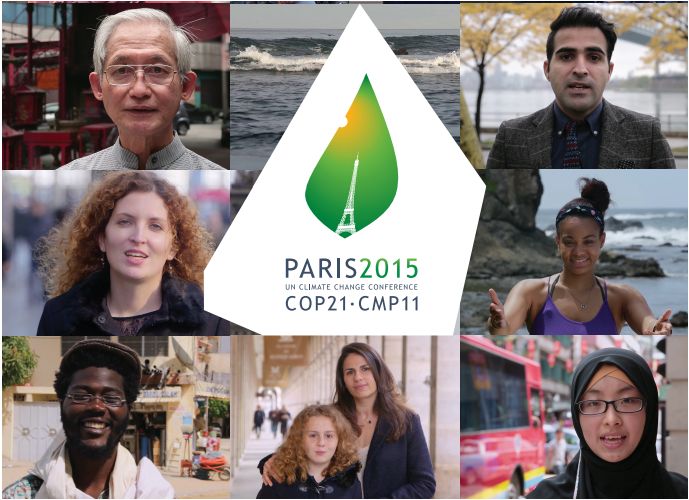Less than a week into the crucial global climate change conference here, some 196 participating countries on Saturday reached a draft deal which seeks to address one of India’s main demands that rich nations must extend emerging economies both funding and technology so that their clean and green development goals do not entail unfair costs or burden.
The delegates at the 21st Conference of Parties under the United Nations Framework Convention on Climate Change, who have been holding deliberations here since November 30 said they have a blueprint that seeks to reduce carbon emissions and limit global warming at a level that will be negotiated next week.
The draft was handed over at the plenary session on Saturday morning, after working through the night before on the fourth such text issued in the past three days. Once the officials come to an understanding, it is expected to be scaled up to the ministerial level for a pact where India will be led by its Environment Minister Prakash Javadekar.
The thrust is on a legally-binding deal before the end of this round of negotiations due till December 11.
Significantly, the 48-page draft says developed countries shall provide new and additional financial resources, technology transfer and capacity-building to meet the agreed full costs incurred by developing countries in complying with their obligations. It also says the extent to which emerging economies implement their commitments will depend on rich nations meeting their commitments.
The draft, which has a substantial amount of the text in square brackets — meaning these are either contentious or yet to be negotiated — also proposed to raise $100 billion annually from 2020, recognising the key role that it will play in implementing the final pact in its true spirit.
This is important since the poor and emerging economies want clean and green technology and funding from rich nations to pursue their national interests without harming the environment further, as they hold the industrialised responsible for polluting the earth in the past.
“India is looking at a just and equitable outcome firmly anchored in the UNFCCC. India’s priorities are both mitigation and adaptation and both are equally important. India is strongly supportive of food security. Adaptation in the agriculture sector will ensure food security,” said Susheel Kumar, one of the interlocutors from the Indian side.
This year’s conference, also known as the 2015 Paris Climate Conference, is seeking to achieve a legally-binding and universal agreement on protecting the environment — for the first time in over 20 years of UN-mandated negotiations — with the aim of keeping global warming below 2 degrees Celsius.
India has articulated that any outcome at the talks must be just.
“Principle of common but differentiated responsibilities should be the bedrock of our collective enterprise. Anything else would be morally wrong,” Prime Minister Narendra Modi had said when talks began on November 30. “Justice demands that, with what little carbon we can still safely burn, developing countries are allowed to grow.”
At the same time, New Delhi has also proposed some suo moto commitments. It submitted on October 2 its action plan on climate change, called Intended Nationally Determined Contributions, pledging to slash the emission intensity of its economy by 2030 at the 2005 level, while pursuing its own sustainable development agenda.

